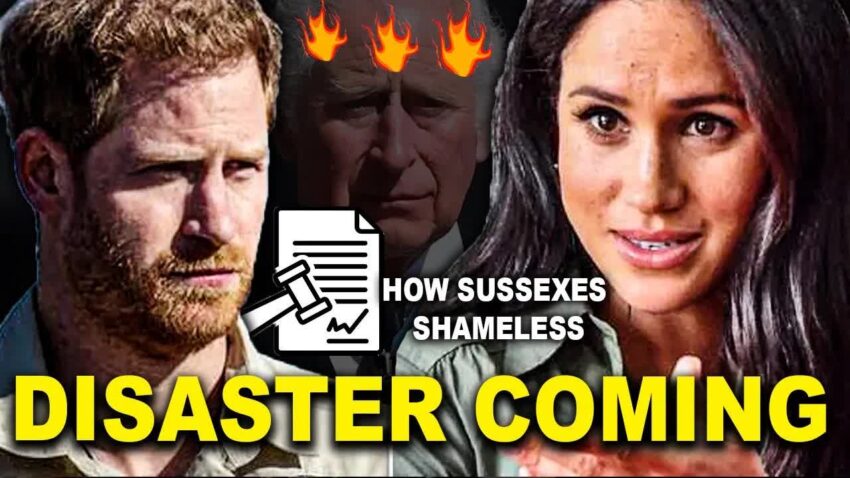Prince Harry and Meghan Markle have taken a bold step by deciding to initiate legal proceedings against the British government.
The crux of the matter revolves around the level of security provided to them when they visit the UK.
The Home Office, a key UK government department, is at the center of this legal tussle, determining the extent of security measures allocated to Very Important Persons (VIPs) like Harry and Meghan.
Prince Harry firmly believes that his status warrants a higher degree of security than what the Home Office deems necessary based on their threat assessment.
His argument stems from his past role as a senior diplomat within the Royal Family, which traditionally entailed elevated security measures funded by British taxpayers.
However, upon relinquishing his royal duties, Harry forfeited this privilege on an individual basis.
The dispute intensifies as Harry challenges the Home Office’s intelligence services’ risk evaluation, alleging that he remains vulnerable to potential threats while in the UK.
Despite the sensitive nature of intelligence gathering, Harry’s plea for increased security appears to lack substantial grounds, primarily revolving around his personal sentiments rather than concrete risk analysis.
Comparisons are drawn with Prince Andrew’s situation, who, upon stepping back from public responsibilities, assumed financial responsibility for his family’s security arrangements.
In contrast, Harry’s relocation to California post-royal exit necessitates self-financed protection.
The complexity deepens with the prospect of Harry leveraging enhanced security to assert his status as an Internationally Protected Person (IPP), potentially shifting the financial burden to the US government.
As the legal battle unfolds, the narrative underscores Harry and Meghan’s transition from revered figures to global subjects of ridicule, particularly within the entertainment industry.
Various media personalities and shows have lampooned the couple’s endeavors in Hollywood, portraying them in a satirical light that contrasts sharply with their former royal stature.
Amidst the legal intricacies and public scrutiny, Harry’s insistence on appealing the court’s ruling faces skepticism, with the likelihood of a successful appeal appearing slim.
The repercussions of the ongoing legal saga extend beyond financial implications, encapsulating broader themes of entitlement, accountability, and the consequences of diverging from traditional royal protocols.
In essence, Harry and Meghan’s journey post-royalty exemplifies a tumultuous narrative marked by legal battles, public scrutiny, and a quest for identity and validation outside the confines of the monarchy.
As the saga continues to unfold, the couple’s evolving narrative serves as a cautionary tale of the complexities inherent in navigating newfound roles and responsibilities while grappling with the legacy of their royal past.
